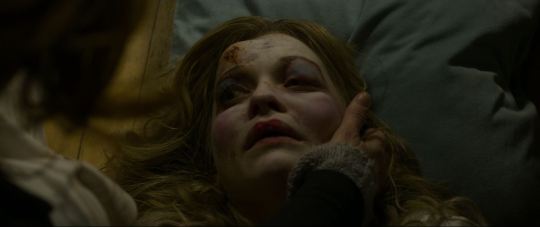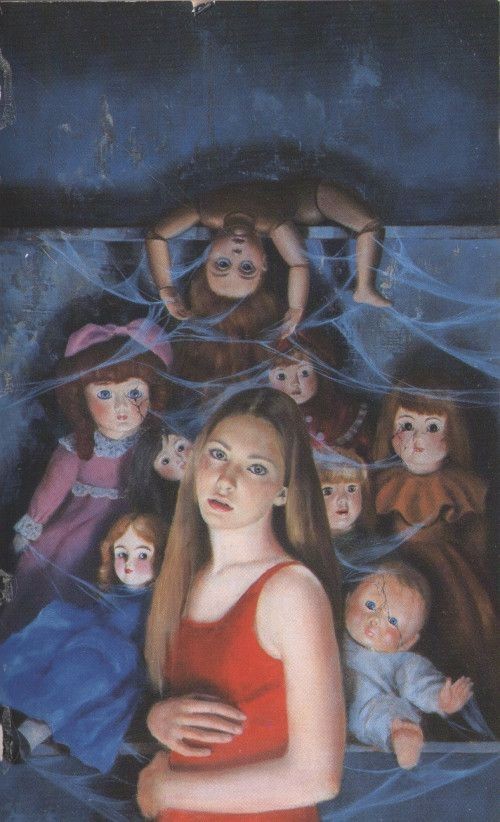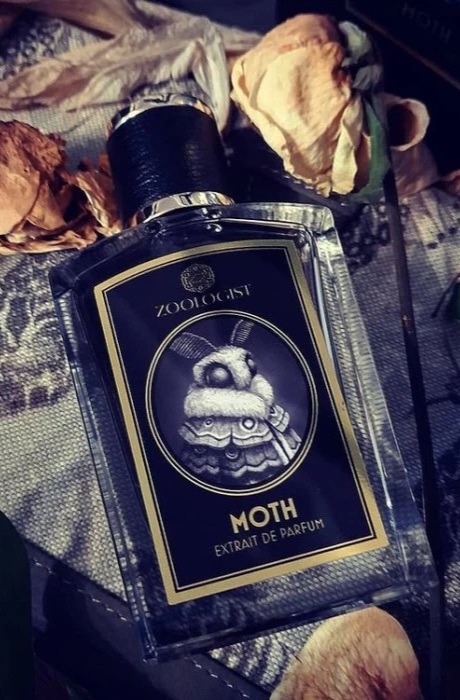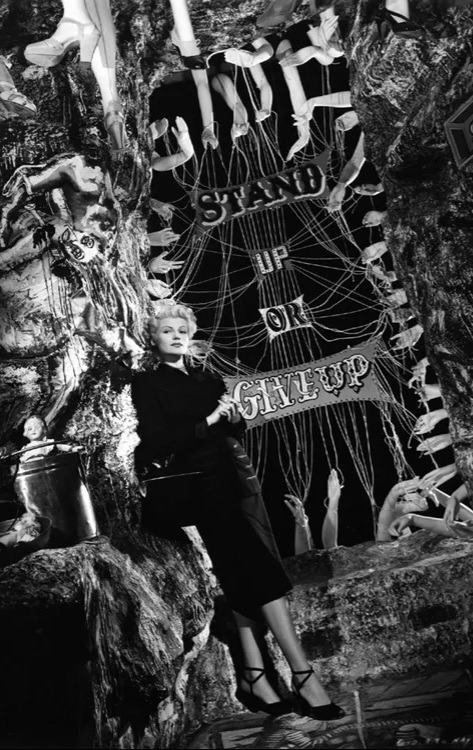#pascal laugier
Explore tagged Tumblr posts
Text



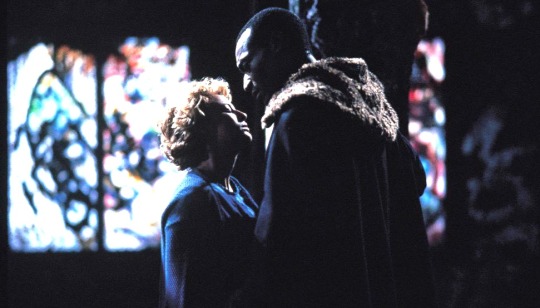



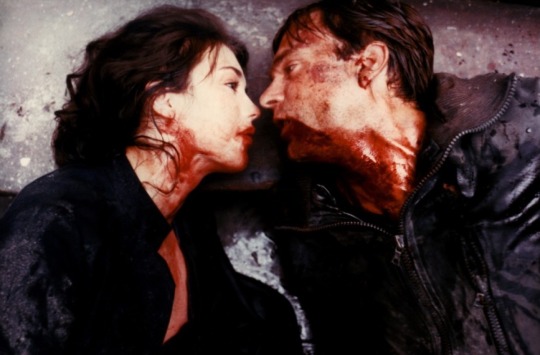
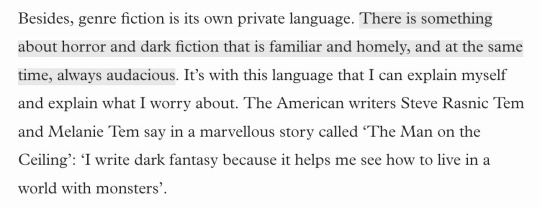

WRITERS + DIRECTORS ON THE POWER OF HORROR
Catriona Ward, interview for The Guardian Mark Gatiss, in A History of Horror (2010) Pascal Laugier, for Electric Sheep Candyman (1992), dir. Bernard Rose Colin Dickey, Ghostland Carmen Maria Machado, for Paris Review Kier-La Janisse, House of Psychotic Women Possession (1981), dir. Andrzej Żuławski Mariana Enríquez, ‘Notes on Craft’, Granta Guillermo del Toro, Haunted Castles, Dark Mirrors
#guillermo del toro#carmen maria machado#kier la janisse#possession#candyman#catriona ward#mariana enriquez#colin dickey#pascal laugier#mark gatiss#ana speaks#mine#my comparatives#quotes#horror#popular
3K notes
·
View notes
Text

“Martyrs are exceptional people. They survive pain, they survive total deprivation. They bear all the sins to the earth. They give themselves up. They transcend themselves, they are … transfigured.”
215 notes
·
View notes
Text
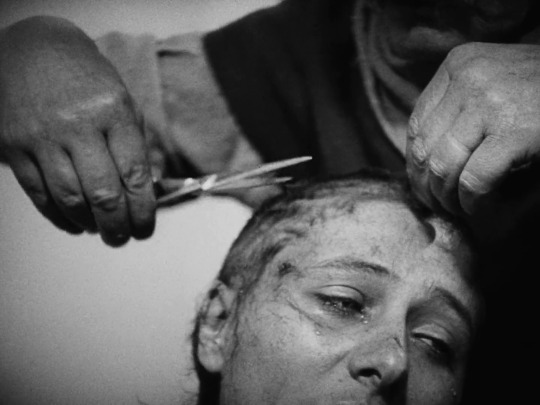

La Passion de Jeanne d'Arc (1928), dir. Carl Theodor Dreyer / Martyrs (2008), dir. Pascal Laugier
#la passion de jeanne d'arc#the passion of joan of arc#martyrs#carl theodor dreyer#pascal laugier#morjana alaoui#film#film stills#filmedit#movies#movie stills#cinema#cinephile#horror#horror movies#my posts
294 notes
·
View notes
Text









𝐌𝐚𝐫𝐭𝐲𝐫𝐬 (𝟐𝟎𝟎𝟖)
𝐃𝐢𝐫𝐞𝐜𝐭𝐨𝐫: 𝐏𝐚𝐬𝐜𝐚𝐥 𝐋𝐚𝐮𝐠𝐢𝐞𝐫
(OC)
#martyrs#martyrs 2008#horror#horror aesthetic#french horror#aesthetic#art blog#horror blog#aesthetic blog#movie screenshots#afterlife#extreme horror#extreme cinema#morjana alaoui#pascal laugier#new french extremity#religious symbolism#theological#life after death#dark aesthetic#martyrdom#2000s cinema#2000s horror#horror screencaps#horror film#horror cinema#symbolism#disturbing cinema#religious iconography#eyes
128 notes
·
View notes
Text
does anybody like martyrs 2008 … is there a fandom for that …
#rez speaks#martyrs#martyrs 2008#anna assaoui#lucie jurin#french cinema#french#movies#horror#pascal laugier#they are gay#wlw movie#film
74 notes
·
View notes
Text






martyrs (2008) dir. pascal laugier
#martyrs#pascal laugier#mylène jampanoï#morjana alaoui#catherine bégin#film aesthetic#film stills#film#french cinema#french film#french horror#00s movies#00s film#00s horror#french films#horror
69 notes
·
View notes
Text






Martyrs (2008), Pascal Laugier La jeune martyre, Paul Delaroche
100 notes
·
View notes
Text

#movies#polls#martyrs#martyrs 2008#martyrs movie#2000s movies#pascal laugier#morjana alaoui#mylène jampanoï#catherine bégin#robert toupin#patricia tulasne#requested#have you seen this movie poll
85 notes
·
View notes
Text
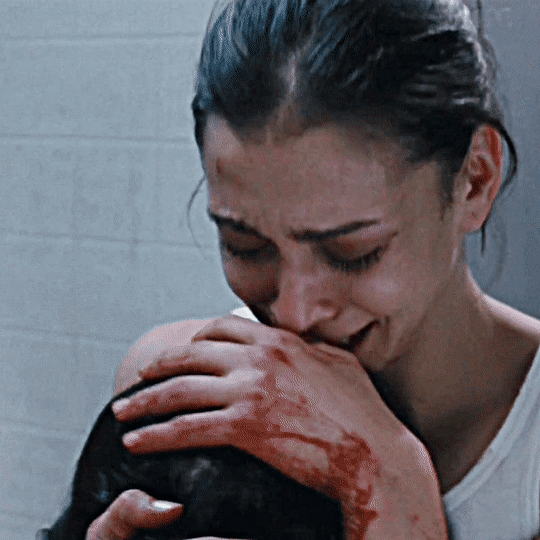
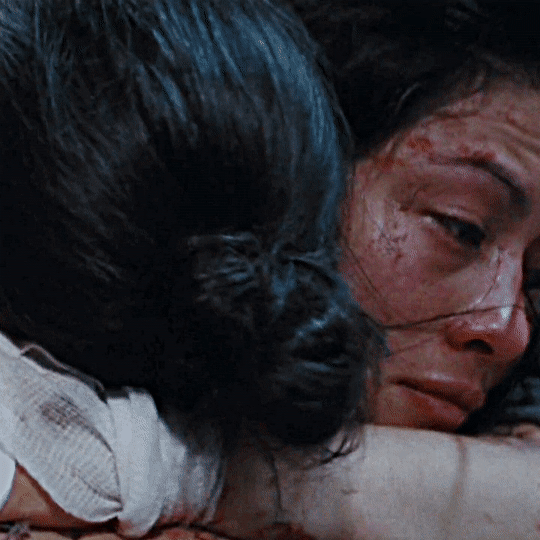
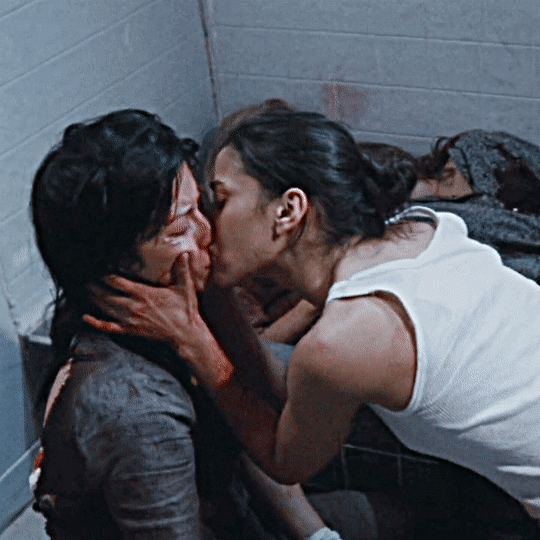
MARTYRS (2008) dir. Pascal Laugier

#martyrs#martyrs 2008#pascal laugier#morjana alaoui#mylène jampanoï#horrorgifs#horroredit#cinemagifs#filmgifs#gifset#actors#cinema#french cinema#useranna3#tw blood#🫀
446 notes
·
View notes
Text

I finally watched Martyrs (2008) yesterday and posted a queer analysis on Letterboxd, but I think it may be more appreciated here on Tumblr where all the queer Martyrs (2008) fans seem to have flocked. So here’s my argument for why Anna and Lucie’s love was not one-sided, but fully reciprocated, and as a necessary warning, MAJOR SPOILERS AHEAD.

Firstly, when Anna drops her wallet in the car, the camera pans to the open wallet and we see that Anna keeps photos of herself and Lucie inside. Anna dropping the wallet and the camera focusing on the open wallet for half a second was intentional- we as the audience are meant to take note of its contents. On the left side of the wallet, Anna keeps a candid photo of herself and Lucie when they were younger, presumably taken by an orphanage staff member. You can argue that this photo alone isn’t proof because Anna might just have fond memories of their shared history together as childhood best friends, and I might even agree if we stopped there. However, the other photo in the wallet in combination with this one is extremely revealing.
On the right side of the wallet, Anna keeps a photo of just Lucie alone. In the photo, Lucie is wearing a silly birthday cone hat on her head and looking up at the camera and warmly smiling/laughing. To me, this is an inarguably intimate photo for Anna to keep in her wallet. Why? Presumably, Anna herself took the photo since she’s not in the shot, and if we place ourselves in Lucie’s shoes, we can then assume that she’s not only smiling for the camera, but at Anna herself as she takes the photo. The contrast between the silliness of Lucie’s hat versus the expression on her face radiates unadulterated love for the person taking the photo and a cozy sense of domesticity. For Anna to feel so connected to that photo of Lucie in particular to the point of carrying it with her at all times shows how much that moment with Lucie meant to her.

Secondly, after Anna and Lucie place the now (mostly) dead Belfonds’ bodies in the bathroom, Anna’s shock wears off after making eye contact with Marie Belfond and the reality of the situation they’re in begins to register. Alone in the bathroom, Anna breaks down and begins to cry as she kneels on the floor next to the bodies. Having heard Anna crying, Lucie returns to check in on her and kneels in front of Anna, then the two take each other in for an intimate embrace. As Lucie rests her head on Anna’s chest, Anna kisses the top of her head, and Lucie responds by tenderly kissing Anna’s neck not once- mind you- but multiple times. After pulling out of the embrace, Lucie gives Anna a small yet tender smile, and Anna responds to this by cupping Lucie’s face and kissing her on the lips. At this point, Lucie pushes Anna away and asks, “What are you doing?”
I’ve seen many point to this as Lucie rejecting Anna romantically and therefore an indication that they’re not a couple, but I disagree with this analysis. When Lucie pushes Anna away, she notably does so very gently and her tone when she asks “What are you doing?” was extremely calm. This indicated to me that it wasn’t Anna’s affection that took Lucie off-guard, but the timing of it. I would think that if it was a wholesale rejection of Anna’s romantic love, Lucie would’ve pushed her away more quickly/roughly and used a harsh tone.
As for why Anna kissed Lucie in that moment, I believe seeing Lucie’s smile brought her a moment of normalcy during an otherwise horrific event- something she desparately needed as the shock wore off, and something only Lucie could offer. Lucie’s smile reminded Anna of the intimate moments where she’s seen Lucie smile at her like this, and as an effort to grab onto that sense of normalcy she does what she typically does in response to her smile- she kisses Lucie.

Lastly, and to me a scene that is just BEGGING to be picked apart, is when Anna calls her mother the morning after Lucie kills herself. We learn that Anna hasn’t spoken to her mother in over two years, and from the jump her mother is clearly frustrated with Anna. She asks Anna where she’s living and how she’s doing, and Anna simply replies by saying “I’m okay.” Her mother, dissatisfied with Anna’s non-response, asks “You’re still with her?”, referring to Lucie. She then claims that Anna is “under [Lucie’s] influence.” Anna quickly rushes in to deny her mother’s accusation, but her mother doesn’t take it and exclaims “Christ! You’re still with her- it’s the same thing.” Further frustrated by the revelation that Anna is still “with” Lucie, Anna’s mother goes on a rant about Lucie, calling her a “good-for nothing” and “a bitch, a pervert, [and] a loser.” She concludes her rant by telling Anna to “get away from [Lucie].”
Anna’s mother’s choice of language when she disparages Lucie is striking. Her choice to use the word “pervert” to describe Lucie stuck out to me in particular, as it’s not typically a word used by parents to admonish their child’s friends (although I suppose we could also say Lucie isn’t “typical”). From context clues, we know that Anna comes from a religious background- presumably Christian- and therefore her mother is probably religious. Many religions, Christianity being no exception, push the idea that any non-heterosexual person/act is inherently “perverted.” It’s highly possible that part of Anna’s mother’s disdain towards Lucie and her frustration with Anna is rooted in these homophobic values and her attribution of “perversion” to Anna and Lucie’s relationship.
This can also explain why Anna hasn’t contacted her mother in over two years. Anna is used to her mother prying into her relationship with Lucie every time they talk and she’s tired of her mother’s judgment. Anna’s mother repeatedly pries because she desperately wants Anna to tell her that she’s finally rid herself of Lucie (and consequently of her “perversion”) and she’s exasperated because every time they call she learns that they’re still together and Anna has no intention of leaving Lucie.
I also want to call back to how, after initially learning they’re still together, Anna’s mother says “it’s the same thing” and her assertion that Anna is “under [Lucie’s] influence.” I interpret the use of “it” by Anna’s mother to refer to homosexuality (because the “it” is implied to be part of the reason they haven’t spoken in two years), and Lucie’s supposed “influence,” to Anna’s mother, Lucie is “influencing” her daughter to be gay and again “perverted.”
Another thing of note, after Anna’s mother asks why she’s calling her after two years, she asks if the reason for the call is to “make [her] feel guilty.” She follows this up by rhetorically asking “Think I don’t blame myself? Think my head’s not filled with all the crap I did?” It’s possible that Anna’s mother is referring to the act of leaving Anna in an orphanage, but for this to be the case, the timeline doesn’t add up. I believe this supposed “guilt” could instead refer to what transpired during their last phonecall and caused the two years of no-contact. If we assume that my explanation above regarding her mother’s prodding is correct, we can guess that the last call ended poorly because Anna refused to leave Lucie (therefore refusing to “stop being gay” in her mother’s eyes), and this led to their estrangement. When Anna’s mother refers to the “guilt” she feels, she may only be referring to feeling guilty for the harsh way she addressed Anna in the last call and not for the rationale behind her harshness. She feels guilty not for being homophobic, but for doing so in such a way that her daughter pushed her away.
This could also just be the familiar actions of an abusive person utilizing DARVO to make their victim feel like they’re the abuser. By making Anna feel like she’s at fault for making her mother spend the past two years feeling “guilty” and torturing herself with “all the crap [she] did,” her mother effectively turns the blame and offloads any feelings of guilt onto Anna.
Now, why did Anna call her mother for the first time in two years at this moment of crisis given their fraught past? One explanation is that Anna, knowing that there’s no longer any normalcy after Lucie’s death, thinks that now that the world has seemingly turned on its head, maybe- just maybe- her mother could provide a sense of comfort. Anna hopes that now that it’s been two years, now that her mother has had time to reflect, and now that nothing feels real anymore, she can confide in her mother about the fact that her lover killed herself and receive any amount of consolation. While illogical in any other moment, now that reality itself is illogical, Anna holds on to this speck of hope just to be slapped in the face with the fact that her mother hasn’t changed one bit. Another explanation is that Anna called her mother, knowing that she would behave in this manner, and believed that hearing her mother denigrate her relationship with Lucie as if she were still alive- while painful- could give her even an ounce of the normalcy that being with Lucie provided.
Anyways, all of that hullabaloo just to say: Anna and Lucie are in lesbians.
#martyrs 2008#anna assaoui#lucie jurin#lucieanna#french#horror#queer#2000s#film analysis#letterboxd#mylene jampanoi#morjana alaoui#pascal laugier#text
19 notes
·
View notes
Text


Pascal Laugier speaks of Mylène Jampanoï's performance in Martyrs (2008)
#pascal laugier#martyrs organic chronicles#martyrs#martyrs 2008#mylene jampanoi#Mylène jampanoï#isabelle adjani#possession 1981
93 notes
·
View notes
Text
Drives me insane that people categorise Martyrs (2008, French Ver.) in the same bracket as A Serbian Film. Like, did you not see the love baked into the movie? How love is what ultimately moves the plot to where it ends up? How it is the core message the film wants you to come away with?
Vague spoilers under cut
It shoves in your face the concept that pain and suffering is a woman's birthright. We are "predisposed" to torment that, given the right nudge, can turn into enlightenment. "Matyrs" or rather, a "Witness" to our enduring trauma, and the movie shows you that it's wrong. It's flawed, and evil and cruel.
Women who become Matyrs do so in SPITE of their pain. They are fuelled by their love of something, someone, and find peace in it. Anna's love for Lucie, her deep empathy and kindness to those around her is what ultimately frees her from suffering.
And yet, the film is careful to express to us witnesses, that those who become "victims" instead, are not deserving of vitriol or hate, or fear. They have personhood and value. They are not lesser because they "failed" in becoming Martyrs, rather that to try and engineer the Divine, results in meaningless suffering of innocents. Anna became a Martyr because she had the tools in which she could find meaning past her torture. She had her memories and love of Lucie, her innate desire for the betterment of everyone she came in contact with and the knowledge of "why" she was forced to endure inhumanity. The countless "victims" did not have that. They were women who were vulnerable, alone, and to them, their agonies had no meaning to it past simple sadism.
Love brought Anna to follow Lucie, and end up falling into the wrong hands. And Love guided Anna past it.
#martyrs#martyrs 2008#pascal laugier#lucie jurin#anna assaoui#matyrs movie#analysis#french extremist horror#horror movie#french horror
72 notes
·
View notes
Text

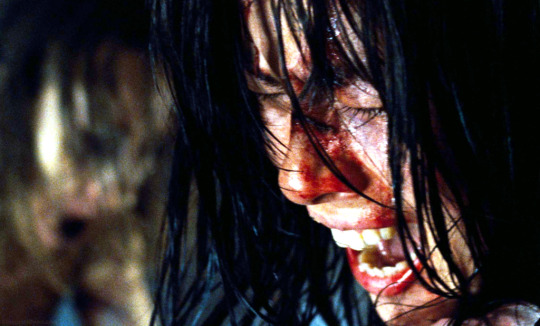

Mylène Jampanoï in Martyrs 2008 (Pascal Laugier).
63 notes
·
View notes
Text
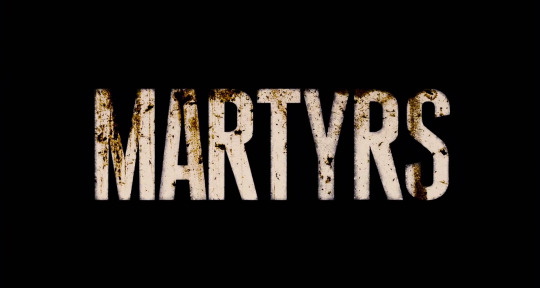
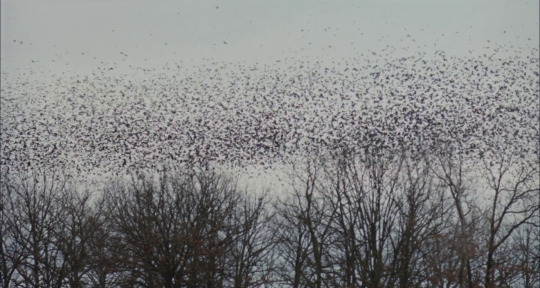



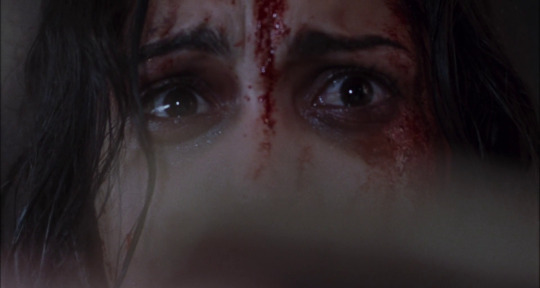
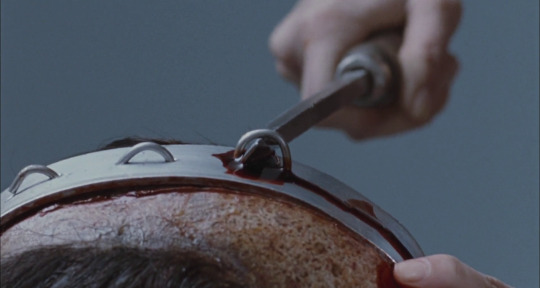



MARTYRS (2008)
Director: Pascal Laugier Cinematography: Stéphane Martin & Nathalie Moliavko-Visotzky
#martyrs#pascal laugier#morjana alaoui#mylêne jampanoi#new french extremity#french horror#french cinema#horror#horror movies#horror screencaps#cinematography#film screencaps#film screenshots#2000s horror#2000s horror movies#film frames#movie screencaps#movie screenshots#movie frames#screencaps#screenshots
200 notes
·
View notes
Text

Martyrs (2008)
7 notes
·
View notes
